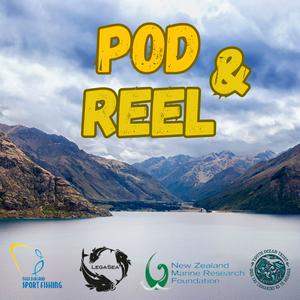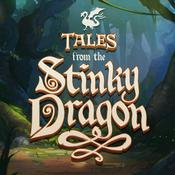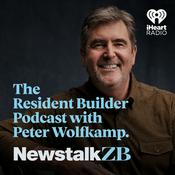10 episodes
- Send us a text
What does it feel like to grow up where crayfish once filled wooden sea tanks and kahawai boiled along the beach all year, then watch that richness fade to mud and empty reef? Sitting above Omaha and looking across to Goat Island, we talk with Tī Point local and former commercial fisherman Barry Talkington about how the Hauraki Gulf slid from abundance to scarcity, and how we can turn it around.
Barry takes us from the mail-truck days of sackfuls of crays to the industrialisation of inshore fishing: bottom trawls, heavy gear, and the sediment plumes that flatten shell and sponge habitats into lifeless mud. He explains why marine reserves like Goat Island are “better than outside,” yet still bounded by the health of adjacent waters. We dig into high protection areas, displacement of effort, and the uncomfortable truth that closures often signal failure, not success.
We also lift the lid on the economics. Quota concentration, closed markets, and rent-seeking leave small-scale fishers squeezed and fillets overpriced, while innovation stalls. Barry argues for de‑industrialising inshore waters, preferring static, selective methods, and reforming the Fisheries Act to set higher biomass standards that rebuild abundance across the entire Gulf. That means separating inshore from deepwater management, restoring fair public value through resource rentals, and opening pathways for local, transparent supply from boat to plate.
This conversation is blunt but hopeful. COVID’s quiet showed fish returning when pressure lifted. Clubs are leading with selective gear and stewardship. Councils can tighten runoff and protect the first few hundred metres of intertidal and shallow reef. Most of all, we can choose laws that leave more fish in the water today so our kids inherit thriving reefs, not stories about them. If the Gulf recovers, everyone wins—customary, commercial, and recreational.
If this resonates, follow the show, share it with a mate, and leave a review with the one change you’d make to restore the Hauraki Gulf. We’re listening.
Support the show
This Podcast is brought to you by The New Zealand Sport Fishing Council a not for profit, incorporated society funded by its member Clubs.
You can find your nearest club here
Please SUBSCRIBE to this podcast to receive new episodes weekly!
If you want to hear more episodes like this please consider supporting the podcast here - Send us a text
New Zealand's fishing and boating world is being transformed by women who are taking leadership roles, challenging stereotypes, and creating inclusive spaces for everyone on the water.
• Mercury Bay Game Fishing Club women describe how clubs should focus on fishing opportunities rather than just becoming social drinking venues
• The "Girls in the Bay" fishing competition showcases women's abilities and creates an even playing field for all participants
• Wild Chix explain how they're filling the knowledge gap for women who never had fathers or uncles teach them boating skills
• Coast Guard skipper Sarah Psilas shares essential safety advice including having two forms of communication and proper life jacket use
• The importance of women understanding proper safety protocols to save lives in emergencies
• Lisa Noble describes her journey in fishing competitions and building her fishing gear brand Ocean Obsessed
• Women's fishing competitions foster a supportive environment where participants build each other up rather than focusing solely on competition
To learn more about women's fishing initiatives and upcoming Wild Chix workshops, visit our website at nzsportfishing.org.nz or check out the Wild Chix website for course dates around New Zealand.
Support the show
This Podcast is brought to you by The New Zealand Sport Fishing Council a not for profit, incorporated society funded by its member Clubs.
You can find your nearest club here
Please SUBSCRIBE to this podcast to receive new episodes weekly!
If you want to hear more episodes like this please consider supporting the podcast here - Send us a text
New Zealand's maritime landscape is changing as women step into leadership roles on the water, bringing fresh perspectives and challenging outdated assumptions about who belongs at the helm.
• Lisa Noble shares her journey from hairdressing to commercial cray fishing, and charter operating while emphasising how determination matters more than gender
• Sarah Psilas discusses her 10-year Coastguard career and passion for teaching water safety to children across New Zealand
• Wild Chix founder Isabell Zitzelsberger and Shanel Honore explain how they created workshops to teach women boating and fishing skills they'd otherwise never learn
• The Mercury Bay Game Fishing Club team highlights the success of their Girls in the Bay competition and growing female participation
• Hear how women in clubs play a vital role in communities, creating opportunities for learning, mentorship, and giving back
• The importance of wearing life jackets and carrying safety equipment can't be overstated - "Wearing a life jacket has never given anybody a bad day ever"
The NZSFC Pod and Reel podcast is brought to you by the New Zealand Sport Fishing Council with support from Maritime New Zealand and the Safer Boating Forum.
Support the show
This Podcast is brought to you by The New Zealand Sport Fishing Council a not for profit, incorporated society funded by its member Clubs.
You can find your nearest club here
Please SUBSCRIBE to this podcast to receive new episodes weekly!
If you want to hear more episodes like this please consider supporting the podcast here - Send us a text
The West Coast of New Zealand offers world-class fishing but demands extreme respect, with veterans sharing hard-earned wisdom on staying safe in these challenging waters. Five local legends reveal how they've survived decades fishing this untamed coastline while witnessing the sometimes fatal consequences of poor preparation and decision-making.
• West Coast fishing described as "second to none" but protected by dangerous conditions
• Fishery relatively untapped compared to East Coast due to challenging weather and access
• No islands or sheltered harbours to provide safety when conditions deteriorate
• Drowning statistics reveal 192 recreational fisher deaths since 1980, with 66% occurring on rocks
• Only 26% of rock fishers wear life jackets, while 36% can't swim more than 50 meters
• Proper safety gear includes fitted life jackets, appropriate footwear (not gumboots), PLBs
• Fishing with mates creates crucial safety network for emergencies
• Local fishing clubs provide vital knowledge, assistance and community safety systems
• Bar crossings require careful planning around tides, swells and wind conditions
• Recovery efforts for drowning victims create lasting trauma for rescuers and families
If you're heading out fishing, check weather forecasts, wear appropriate safety gear, tell someone your plans, and remember - no fish is worth your life.
The NZSFC Pod and Reel podcast is brought to you by the New Zealand Sport Fishing Council with support from Maritime New Zealand and the Safer Boating Forum.
Support the show
This Podcast is brought to you by The New Zealand Sport Fishing Council a not for profit, incorporated society funded by its member Clubs.
You can find your nearest club here
Please SUBSCRIBE to this podcast to receive new episodes weekly!
If you want to hear more episodes like this please consider supporting the podcast here - Send us a text
Our journey takes us to New Zealand's wild west coast, where experienced local fishers share crucial knowledge about surviving the unforgiving surf, beach launches, and bar crossings that make these waters so challenging yet rewarding.
• Five west coast legends with decades of frontline experience reveal their hard-earned wisdom
• Mark Gill from Manukau Sport Fishing highlights the importance of proper vehicle preparation and weather forecasting
• Chris O'Neill and Duncan Clarke from Piha Deep Sea Fishing Club explain why club membership provides essential safety networks
• Craig Ross from Muriwai Sports Fishing Club describes his 37 years of beach launching experience and techniques for reading surf conditions
• Dr. Mick Kearney from Drowning Prevention Aotearoa emphasises planning as the foundation of west coast fishing safety
• Local knowledge passed through clubs provides crucial information about changing conditions, safe launching spots, and rescue protocols
• Proper preparation includes deflating tyres to 10 PSI, carrying spare parts, and always wearing life jackets
• Understanding tide, swell, and wind patterns is essential before attempting a west coast launch
• The west coast is "self-governing" - its challenging conditions naturally limit fishing pressure and maintain healthy fisheries
• Experienced fishers prioritise safety over catching fish, often cancelling trips when conditions appear marginal
The NZSFC Pod and Reel podcast is brought to you by the New Zealand Sport Fishing Council with support from Maritime New Zealand and the Safer Boating Forum.
Support the show
This Podcast is brought to you by The New Zealand Sport Fishing Council a not for profit, incorporated society funded by its member Clubs.
You can find your nearest club here
Please SUBSCRIBE to this podcast to receive new episodes weekly!
If you want to hear more episodes like this please consider supporting the podcast here
More Leisure podcasts
Trending Leisure podcasts
About NZSFC's POD AND REEL Podcast
Welcome to the Pod and Reel podcast, presented by the New Zealand Sport Fishing Council, a national body with over 50 affiliated clubs across New Zealand, and over 37,000 members. Since 1957, NZSFC has focussed on setting standards for responsible fishing practices, collating records, organising events like the Nationals, and supporting its affiliated fishing clubs. This podcast dives deep into the history, the people, and the clubs that make up our fishing community. We'll explore the highs and lows of fishing and learn from mistakes made, striving to be better, safer, and smarter when we interact with the water. With 15,000 kilometres of coastline, New Zealand's fishing history is rich with stories of the tussle between us and the sea.Join Mike Plant as we delve into these topics and more on the Pod and Reel podcast, your gateway to the world of all things fishing in New Zealand.
Podcast websiteListen to NZSFC's POD AND REEL Podcast, Gardeners' Question Time and many other podcasts from around the world with the radio.net app

Get the free radio.net app
- Stations and podcasts to bookmark
- Stream via Wi-Fi or Bluetooth
- Supports Carplay & Android Auto
- Many other app features
Get the free radio.net app
- Stations and podcasts to bookmark
- Stream via Wi-Fi or Bluetooth
- Supports Carplay & Android Auto
- Many other app features


NZSFC's POD AND REEL Podcast
Scan code,
download the app,
start listening.
download the app,
start listening.
































